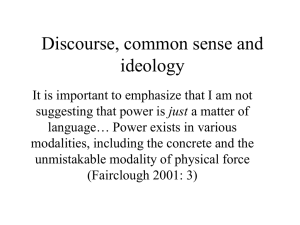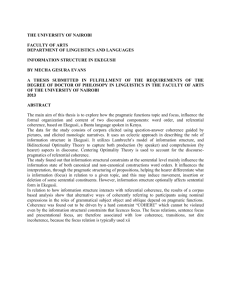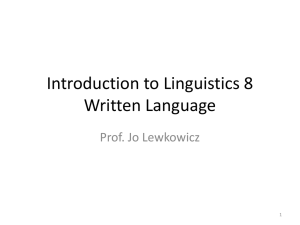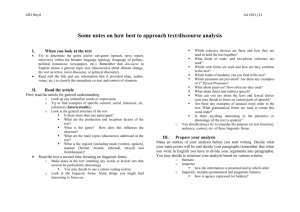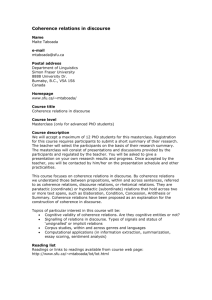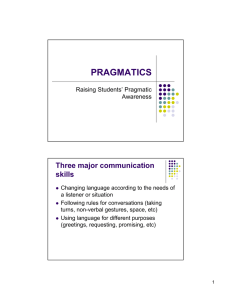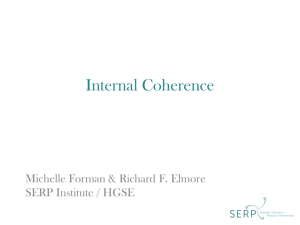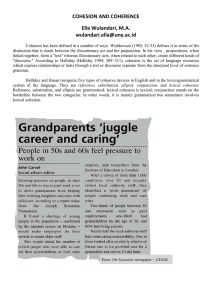look here soon for final project information and - it
advertisement
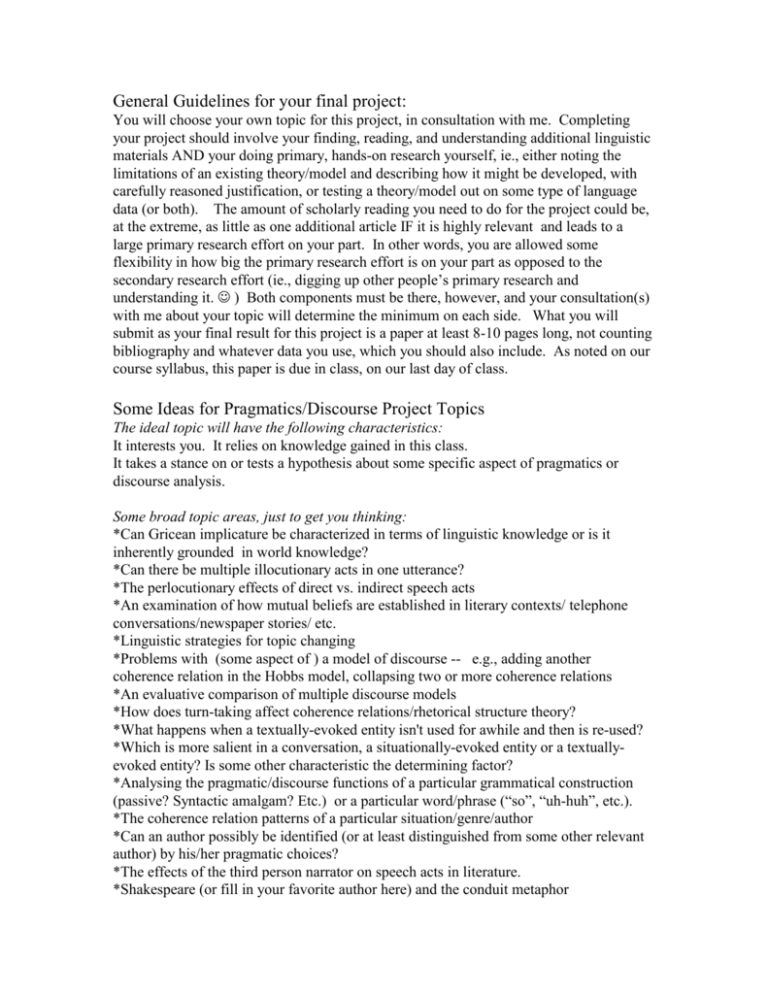
General Guidelines for your final project: You will choose your own topic for this project, in consultation with me. Completing your project should involve your finding, reading, and understanding additional linguistic materials AND your doing primary, hands-on research yourself, ie., either noting the limitations of an existing theory/model and describing how it might be developed, with carefully reasoned justification, or testing a theory/model out on some type of language data (or both). The amount of scholarly reading you need to do for the project could be, at the extreme, as little as one additional article IF it is highly relevant and leads to a large primary research effort on your part. In other words, you are allowed some flexibility in how big the primary research effort is on your part as opposed to the secondary research effort (ie., digging up other people’s primary research and understanding it. ) Both components must be there, however, and your consultation(s) with me about your topic will determine the minimum on each side. What you will submit as your final result for this project is a paper at least 8-10 pages long, not counting bibliography and whatever data you use, which you should also include. As noted on our course syllabus, this paper is due in class, on our last day of class. Some Ideas for Pragmatics/Discourse Project Topics The ideal topic will have the following characteristics: It interests you. It relies on knowledge gained in this class. It takes a stance on or tests a hypothesis about some specific aspect of pragmatics or discourse analysis. Some broad topic areas, just to get you thinking: *Can Gricean implicature be characterized in terms of linguistic knowledge or is it inherently grounded in world knowledge? *Can there be multiple illocutionary acts in one utterance? *The perlocutionary effects of direct vs. indirect speech acts *An examination of how mutual beliefs are established in literary contexts/ telephone conversations/newspaper stories/ etc. *Linguistic strategies for topic changing *Problems with (some aspect of ) a model of discourse -- e.g., adding another coherence relation in the Hobbs model, collapsing two or more coherence relations *An evaluative comparison of multiple discourse models *How does turn-taking affect coherence relations/rhetorical structure theory? *What happens when a textually-evoked entity isn't used for awhile and then is re-used? *Which is more salient in a conversation, a situationally-evoked entity or a textuallyevoked entity? Is some other characteristic the determining factor? *Analysing the pragmatic/discourse functions of a particular grammatical construction (passive? Syntactic amalgam? Etc.) or a particular word/phrase (“so”, “uh-huh”, etc.). *The coherence relation patterns of a particular situation/genre/author *Can an author possibly be identified (or at least distinguished from some other relevant author) by his/her pragmatic choices? *The effects of the third person narrator on speech acts in literature. *Shakespeare (or fill in your favorite author here) and the conduit metaphor *Marking sentence topics with intonation. *Testing the power and/or effects of metaphoric vs. literal language * Situational constraints on when different types of metaphors are used *Unique genre/register/type characteristics *Sociocultural factors that affect language use gender factors, institutional language, in-group language, ... *The pragmatic characteristics of the humor of some particular comedian *Illocutions vs. coherence relations -- any correlations in a particular context or in general? *Politeness strategies in a particular context *Irony and politeness
